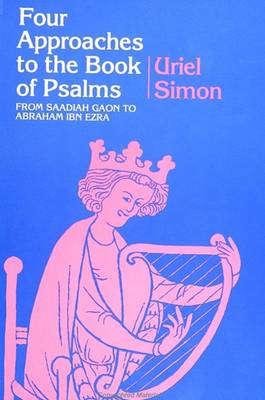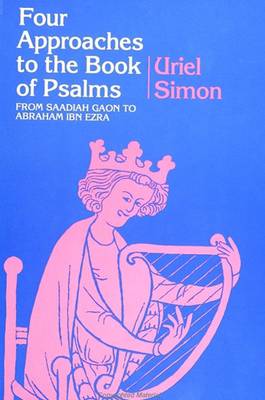
- Afhalen na 1 uur in een winkel met voorraad
- Gratis thuislevering in België vanaf € 30
- Ruim aanbod met 7 miljoen producten
- Afhalen na 1 uur in een winkel met voorraad
- Gratis thuislevering in België vanaf € 30
- Ruim aanbod met 7 miljoen producten
Omschrijving
Uriel Simon describes the fascinating controversy that raged from the tenth to the twelfth centuries regarding the theological status and literary genre of the Psalms. Saadiah Gaon, who initiated the controversy, claimed that the Psalter was a second Torah-the Lord's word to David-and by no means man's prayer to God. Salmon ben Yerucham and Yefet ben Ali insisted on the Karaite view that the Book of Psalms was the prophetic common prayerbook of Israel. Totally opposing both of these concepts, Rabbi Moses Ibn Giqatilah regarded the Psalms as non-prophetic prayers authored by different poets, beginning with David and ending with the captive Levites in the Babylonian exile. Finally, Rabbi Abraham Ibn Ezra reverted to the belief held by the Talmudic sages-that the Psalms were Israel's divinely inspired and most sacred poetry.
The book also includes the full text of a previously unknown introduction to Ibn Ezra's lost commentary on the Psalms, which is much more elaborate and revealing than the introduction to his familiar classical commentary.
Specificaties
Betrokkenen
- Auteur(s):
- Uitgeverij:
Inhoud
- Aantal bladzijden:
- 364
- Taal:
- Engels
- Reeks:
Eigenschappen
- Productcode (EAN):
- 9780791402429
- Verschijningsdatum:
- 4/12/1990
- Uitvoering:
- Paperback
- Formaat:
- Trade paperback (VS)
- Afmetingen:
- 152 mm x 226 mm
- Gewicht:
- 476 g

Alleen bij Standaard Boekhandel
Beoordelingen
We publiceren alleen reviews die voldoen aan de voorwaarden voor reviews. Bekijk onze voorwaarden voor reviews.











